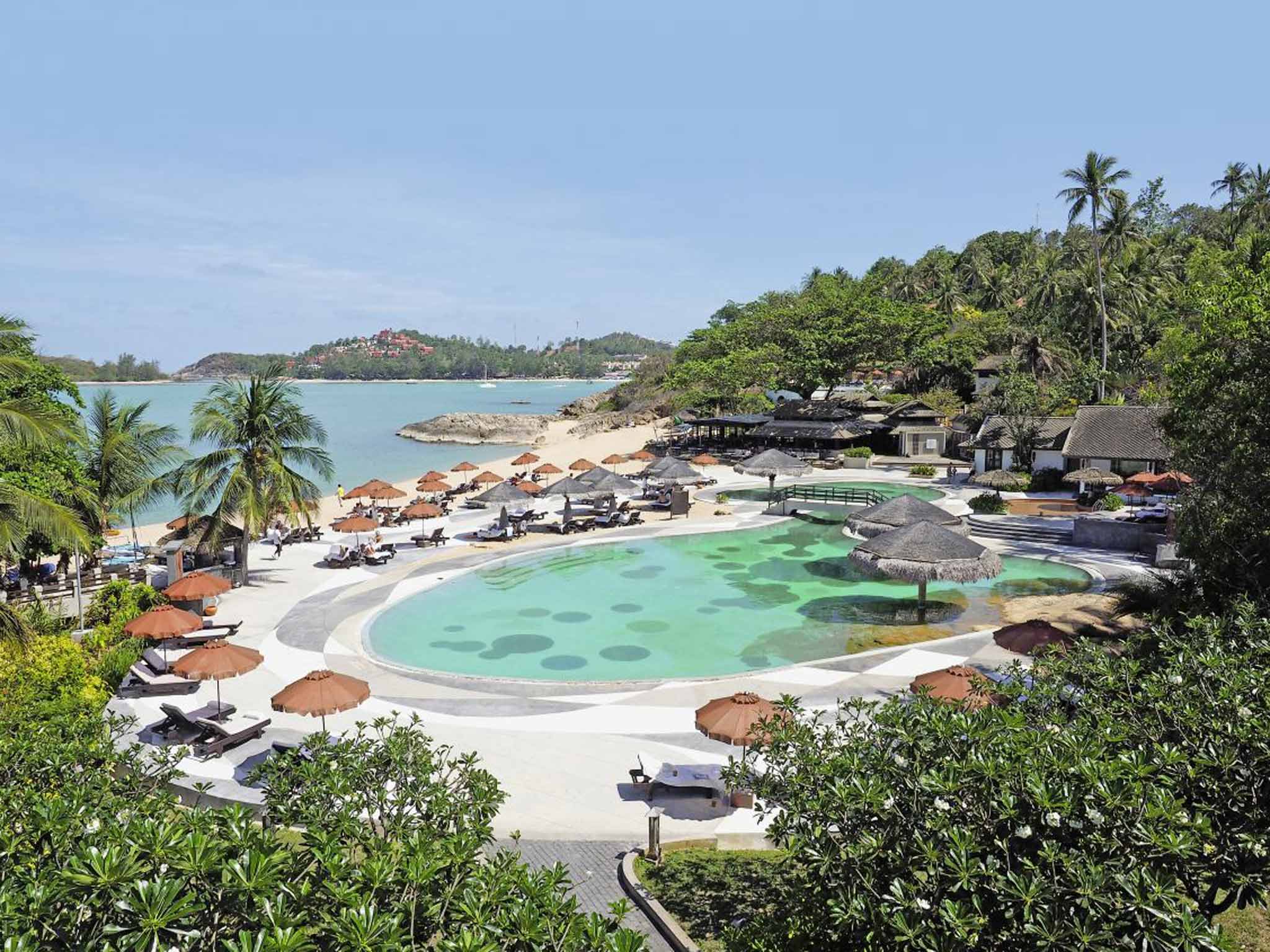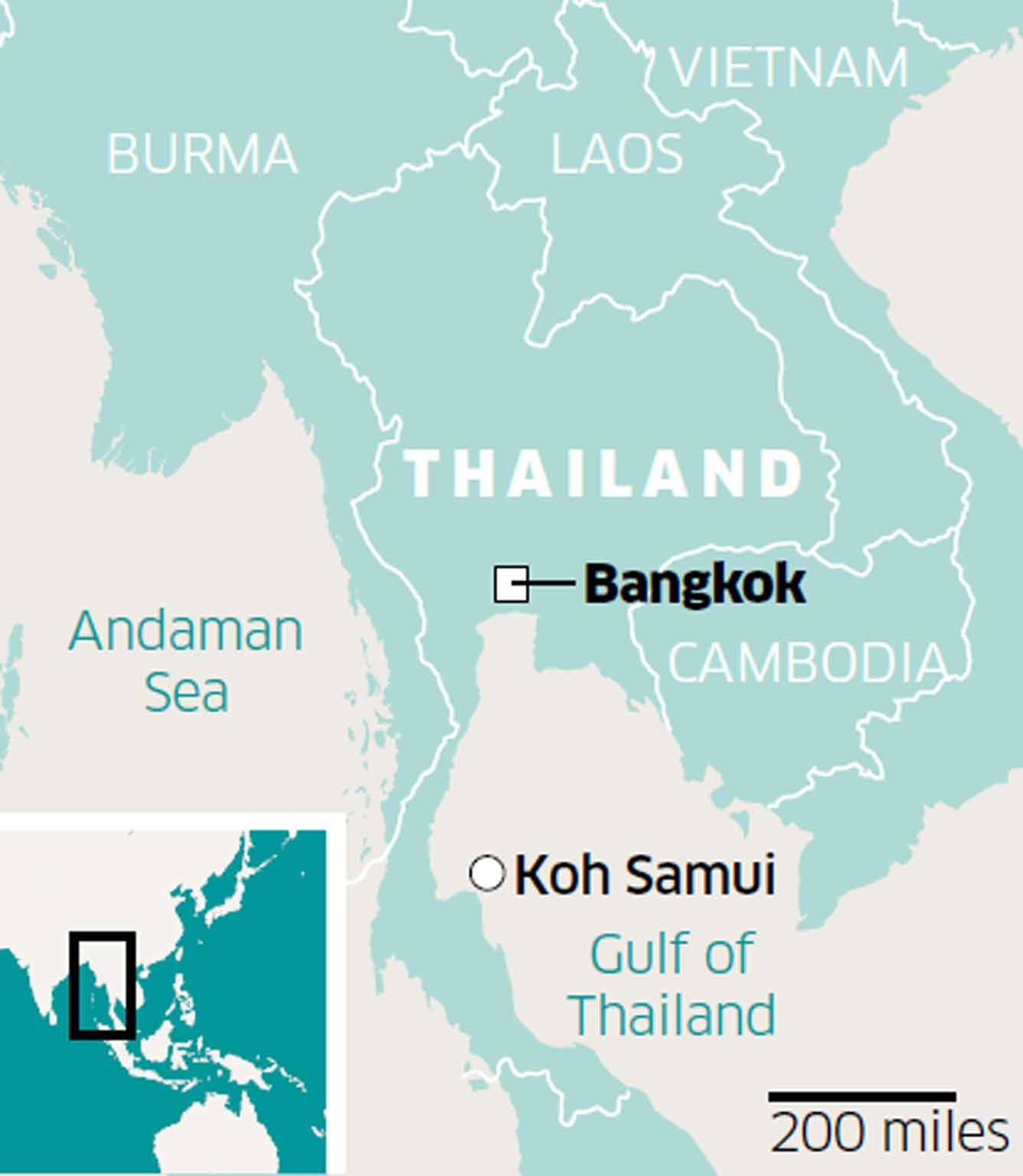Thailand: dream dinners from Bangkok markets to Koh Samui beach shacks
Katy Guest is tantalised by the flavours on offer and even has a go at recreating them herself

Your support helps us to tell the story
From reproductive rights to climate change to Big Tech, The Independent is on the ground when the story is developing. Whether it's investigating the financials of Elon Musk's pro-Trump PAC or producing our latest documentary, 'The A Word', which shines a light on the American women fighting for reproductive rights, we know how important it is to parse out the facts from the messaging.
At such a critical moment in US history, we need reporters on the ground. Your donation allows us to keep sending journalists to speak to both sides of the story.
The Independent is trusted by Americans across the entire political spectrum. And unlike many other quality news outlets, we choose not to lock Americans out of our reporting and analysis with paywalls. We believe quality journalism should be available to everyone, paid for by those who can afford it.
Your support makes all the difference.It is from a vast cauldron on a Koh Samui side street, between a souvenir emporium crawling with little wooden elephants and a live band belting out Rolling Stones hits in Thai, that I finally find my own perfect gaeng keow wan gai. I've had some excellent green chicken curries in Thailand – some rich and sweet with coconut cream; others fragrant with holy basil – but this one, slopped into a bowl by a team of sturdy women and served with a splintery wooden fork, is the one that blows my mind.
And shortly afterwards blows the back of my head off. At the stall, at the Friday night market in Bo Phut in the north of the island, locals are augmenting their food with ladles of hell-red chilli sauce. But my perfect Thai meal – complex and pungent with bitter little aubergines and scrawny chicken thighs – already sets my lips so on fire that I have to duck into the nearest seedy pool bar for a cold bottle of Chang beer.
This is a country that couldn't serve bad food if it tried – even the in-flight meal on Thai Airways is tasty. But my quest for my dream dinner starts properly in Bangkok. The best place to stay here is the Shangri-La, about a minute's walk from both the Saphan Taksin stop on the super-efficient, air-conditioned Sky Train, and the riverboat stop, Tha Sathon. From the hotel's echoing marble lobby, there are three directions you can take. One is away from the river, where immediately the streets are packed with small cafés, filled with locals. (Do Bangkokians ever eat at home, or are they all out munching street food?).
Another way is on the Sky Train, where a 42 baht ticket (80p) will get you to the end of the line, Mo Chit, for the vast Chatuchak weekend market. Detailed maps exist (including Nancy Chandler's Map of Bangkok) to help you locate the touristy bits where you can haggle yourself silly over bamboo tablemats and china bowls, avoid the creepy pets area, and find something to eat that doesn't look like a giant, bubbling vat of stewed eyeballs. Or you can just get lost and shop your way out, then collapse among lunching office workers and young mums in the surprisingly tranquil Chatuchak Park.
The other direction leads to the river: the historical centre from which sprawling Bangkok grew. A 15 baht (30p) river bus trip, past ancient temples, swish hotels, and crumbling buildings with washing hanging from the balconies, takes you to the essential sights. At pier Tha Chang are the Grand Palace and Wat Phra Kaeo, the Temple of the Emerald Buddha. If you can tune out the camera-phone wielding hordes, these golden statues, tiled temples and glass mosaic walls twinkling outrageously in the blazing sunlight, are truly breathtaking.
From here you can walk – or make someone's day and jump in a tuk tuk – to Wat Pho, the temple complex which houses the Reclining Buddha. At 43x15m – all smiling, golden serenity – the big fella is worth the trip on his own. But in 20 acres of shaded temple complex, there are some places of real tranquillity worth seeking out. And I love that the temple offers "free water for tourists": they worry about us under all this sun and awesomeness.
The next important boat stop is Phra Arthit, for the Khao San Road. You don't need to know how to get there from the pier: just follow the backpackers. Though it's not nearly as sinister as you'd think from The Beach, this 500-metre strip of neon and shisha smoke is fabulously overwhelming. The best way to figure it out is to find a front-row seat at one of the noisy bars, order a large Chang, and watch. Does some national union of street hawkers get together once a year to decide: "This season, tourists will mostly be buying green laser pens and fruit bowls shaped like elephants"?
Does anyone ever eat one of those deep fried scorpions on sticks? Is it time for another Chang? After all that beer and "very strong cocktails", the chilli chicken kebab stall is heaven, but for a more civilised meal, find a tiny alleyway at the river end of the street and visit Tom Yung Kung's in a quiet, brick square hung with tiny, red lights and overlooked by some of the original backpacker hostels. "No spicy, no good," laughs the waiter, when someone orders food with "nit noi", a little bit, of heat.
After surviving the Khao San Road, you deserve some chill-out time, so head to Koh Samui, Thailand's second biggest island at about 20km square, off the east coast of the country's long "elephant trunk" isthmus. The place to be is Chaweng Beach: a six kilometre Khao San- on-Sea. Wade out of the warm waters of the Gulf of Thailand and put on some trousers when the lanterns and fairy lights flicker on along the narrow strip, and the smell of food begins to float out on the beat of music from restaurants that tumble out across the beach. (There are some innovative cabling/duct tape scenarios here.)
There's no point in recommending a place to eat or drink here. First, you have to stroll barefoot along the surf, trying not to show the soles of your sandals to the Thais – it's very rude. Then, you have to lie on a daybed, sipping a bucket of Sang Som whisky and coke (about 300 baht/ £6). Only then, once you have ingested the spirit of Chaweng, you must potter along the beach until you spot your place in life. Whether it turns out to be the nameless place with the boat full of iced fish, at the southern end next to the Jamaican bar, or the one with the beautiful waitress in the sheltered bay at the north, you'll never remember how to find it again, anyway. Here, any 120 baht (£1.40) dish, eaten beside rainbow lasers playing on the sea as your chair legs sink into the sand, is the best meal in the world.

If you don't want the night to end and you have the energy, you can bar crawl back down the beach: Lipsmackers for reggae and a prime spot for watching illicit fireworks and floating paper lanterns light up the cliffs to the south; Cha Cha Moon for a sophisticated cocktail in the centre of it all.
But if you like to leave the nightlife behind come bedtime, Silavadee Pool Spa Resort is perfectly placed. At the south-east corner of the island, where Chaweng and Lamai beaches meet, it runs a free shuttle bus to both. This hotel, built on the rocks and with a private pool or Jacuzzi for almost every room, was recently extended, the owner insisting that "no tree older than me" be cut down. If you bus into Lamai on a Sunday evening there is a weekly market, selling clothes and jewellery to tourists, and to the locals an hypnotic array of chicken, ribs, pork-on-sticks, fish balls, dim sum …
As it happens, however, some of the best food in Thailand turns out to be cooked by … me (with a little help from the chefs at Tongsai Bay in the north). This hotel is so devoted to the perfection of Thai food that it recently asked all its northern Thai staff to teach the southern chefs a favourite local dish, and keep teaching them until it tasted just like mama used to make. Chef Chom, after whom the hotel restaurant is named, trained in the palace of the late Princess Vibhavadi Rangsit and collaborated with Keith Floyd on his Far Flung Floyd Thailand series. Her successor, Chef Kak, turns out to be a great teacher.
A cooking lesson here includes a very large lunch for two, and begins with a tour of the hotel's organic garden, the centre of its conservation effort. (Aerial photos show that Tongsai's site has become greener since 2002, while much of Koh Samui has disappeared beneath concrete.)
Fermented pineapple waste and coffee grounds are made into cleaning products, kitchen scraps are composted and recycled water feeds the immense herb garden. The scent of lemongrass, from the chin-high stalks growing here to the oil for the outdoor bath at my villa, will forever take me back to Koh Samui.
After picking some kaffir lime leaves and three types of basil, we head to the restaurant, where Chef Kak patiently demonstrates five of the best Thai dishes I have ever tasted. Apparently Thai people start eating chillies at primary school, and Chef Kak tells me he would use 10, seeds in, to cook for himself. I use only three, de-seeded, for the perfect heat in my geang phed ped yang (grilled duck in red curry with pineapple and lychee).
It is rich and flavoursome, laced with coconut cream and subtly tangy thanks to Kak's tip of marinating the duck in garlic, pepper and coriander root – and it only makes my eyes water a little. I have yet to replicate my sensational dish at home, but I know that my friends will go wild for it. I'll have to make sure that I have a large, cold Chang to hand when they do.

Getting there
Kuoni (01306 747008; kuoni.co.uk) offers a two-week holiday in Thailand from £2,023pp. The price includes five nights' B&B at Tongsai Bay, Koh Samui in a beachfront suite; five nights's B&B in a Jacuzzi deluxe room at the Silavadee Pool Spa Resort, Koh Samui, three nights' B&B at the Shangri-La Bangkok, return Thai Airways flights from Heathrow, domestic flights and private transfers.
Staying there
Shangri-La, Bangrak, Bangkok (00 66 2 236 7777; shangri-la.com).
Silavadee, Koh Samui (00 66 77 960 555; silavadeeresort.com).
Tongsai Bay, Koh Samui (00 6677 245 480; tongsaibay.co.th). The Thai Cooking Class costs 2,900 baht (£56)pp.
More information
Join our commenting forum
Join thought-provoking conversations, follow other Independent readers and see their replies
Comments